- Home
- Matthew Costello
Home Page 2
Home Read online
Page 2
Like that world would never come back.
She went to the side pocket and pulled out her driver’s license. She quickly extended it to the man.
“Look. You can see. We—”
Christie nodded her head in the direction of her two kids in the back.
On cue, Kate said, “Mom? Mom, what’s wrong?”
Such good timing, Christie thought. Kate to the rescue.
And:
We’re in this together. She knows that. The two of us. Can’t expect Simon to understand, to do anything. We’ll have to watch out for him, protect him.
The man hadn’t taken the license.
“Go on. Please. Take a look.” Still no snatch of the ID. Only the man’s turkey neck, turning left and right and left again.
Guy’s so damn scared standing out here.
“Please.”
Another lick of the lips. The man took the license.
He looked at it, too quickly, Christie thought, to take in the address … the location … Staten Island.
He handed the ID back, taking care not to get too close to the open window.
Is he afraid I’m going to grab him, pull him into the car?
Is that the world we live in now?
“You see. Staten Island, says it right there. And, and—” She fought to stay in control. So many times driving here she was so close to losing it. To begin sobbing, howling, the tears erupting.
And she had to tell herself—order herself—to hold it together. For Kate, for Simon, for sanity, for survival.
Finally—because it’s what Jack would have wanted.
It’s why he did … what he did.
In those moments after she knew Jack was gone, she had sobbed quietly at first, while the kids slept, then letting the grief come in waves, feeling as if her mourning would never end.
Now this first barrier, this first test …
To hold it together.
She looked up at the man as she took her license. “We’ve been through a lot. It’s been a bad night, back there.”
“I heard things happened,” the man said.
Was it just hell in the Paterville Camp tonight, or—like the trees turning a fiery orange, back when there used to be so many more deciduous trees—was the madness they faced in the camp spreading?
“We were nearly killed. And I have to get my … babies … home. You can understand that, can’t you?”
The man appeared unmoved. Jack had always said how important it was to have the right papers.
Then: “Okay. Since I can’t check. Since you have that there license.” He took a breath. “You look scared, lady.”
So do you, Christie thought.
Another turret head look around.
“I have to open the gate by hand. Got power in my booth but not the fence, not the gate.”
Now it was Christie’s turn to take a breath.
“That means the electric fence…”
The man nodded.
Christie felt her stomach drop.
“How far? I mean, how far down is the fence off?”
The man shook his head. “Dunno. So—be careful.”
He walked back to the booth, passing through it to a back door that led to the other side of the fence. He attached an iron bar to something that, in the scant light, looked like a kind of gear mechanism.
He began cranking, and the gate sluggishly began sliding to the right.
The cranks and car engine the only sounds in the chilly near-dawn.
Until Christie hit a button and the window rolled up.
And when just enough space had opened for her to get through, she hit the accelerator and flew past the man, still hunched over the crank, but already turning it in the other direction.
And she thought:
We’re that much closer to home.
2
Gas
The road … deserted.
Christie hoped she’d see the occasional car heading north, others passing her heading south. But she was alone on the highway, and that aloneness kept her on edge.
That aloneness and, as she started watching the fuel gauge as she drove a near rock-steady 55 mph toward the Albany area, she had something else to worry about.
Gas.
There’d be people ahead as they got to Albany, she knew. Cars. Maybe the occasional Highway Authority helicopter.
Maybe only an hour away.
Close.
But this car, this nearly decade-old car that belonged to other people, was a guzzler. Not like their SUV Jack had worked on, playing with the engine, adding an afterburner, checking the fuel lines every week so they could stretch every bit of gas they had.
Christie imagined that she could almost see the gauge’s needle slipping lower and lower to the left even as she watched.
She looked up at the mirror. Simon still slept.
At first, she thought that was a good thing.
He’s getting some rest. He needs sleep. It’s good … he’s sleeping.
But the truth that Christie had to admit to herself was that Simon—curled up, eyes locked shut—wasn’t just sleeping.
He was in shock. Had to be.
Christie took a breath. She had never felt so alone in her life.
Alone, and yet with this now crushing responsibility for her two children.
Our two children. She corrected herself. Jack and mine. We brought them this far together.
And now it’s up to me alone.
At that moment, another thought: I can’t do it.
And another …
I don’t know how to do it.
But her only defense now was to push the thought away as best she could.
Go!
Get the fuck out of here. Like when she was barreling out of the camp, shooting the attacking Can Heads, their bodies flying onto the car in a desperate attempt to stop her.
Thoughts were dangerous now. They could immobilize. Paralyze.
And despite having had no sleep. Despite whatever shock she knew she had to be feeling (and yet couldn’t let herself feel), she had to be as sharp and alert as possible.
She reached up and moved the mirror. To see Kate.
Kate, face turned right, eyes glued to the rolling hills outside. With the gray light of dawn, Christie could now see that face. The dried blood spatters on her daughter’s beautiful face.
Need to wash that face. Take a wet face cloth and get her all cleaned up.
As if removing those stains might somehow remove the memory, the reality of what had happened.
She had watched her daughter kill one of them.
Shoot it, squarely, right in its head.
Could any of them ever be the same?
Christie thought she might say something to Kate. About the night. In a quiet voice so as to not awaken Simon.
But her daughter looked zoned out. Perhaps suspended somewhere between sleeping and awake.
What was the line from that decades-old song?
Comfortably numb.
Though not comfortably. But numb enough that she could just sit there.
And though there was no traffic to worry about, at least not yet, she adjusted the mirror back to its proper position.
Then, in what had become a ritual to be performed every few seconds, she looked back down again at the gas gauge.
Which now seemed to be in a mad race to reach E as fast as possible.
* * *
The rest stop ahead immediately reminded Christie of the last time they had stopped for gas.
When Jack had been attacked, and had said … That is it. We should turn around, go back home.
And then, Christie had shaken her head.
(God—only days ago…)
Saying that they had to do this. To get away. They couldn’t just hide in their house. That they all deserved more.
She had taken a stand. And Jack, almost uncharacteristically, finally agreed. They would go on to Paterville Camp. They’d have this vac
ation.
And now—
Jack was dead.
“Mom.”
Simon. Up at last.
Her eyes shot up to his in the mirror even as she slowed down to take the off-ramp.
“Mom.”
“Yes, Simon?”
He didn’t say anything more. She waited, chewing at her lower lip in a near terror at what he might say, what he might ask.
“Simon. Honey. You okay?”
The absurdity, the sheer mad and insane absurdity of that question.
After being held captive at that camp, after escaping through the night, all of them—except her sweet young boy—shooting at those things that had chased them.
Did he understand about his father? They had both become so quiet when Christie had said that she’d explain everything later. She knew from Kate’s sobs that maybe she already understood.
And Simon, somehow, like some strange gift given to young boys, had fallen asleep.
But now—
“Why … are we stopping?”
She nearly smiled at the innocuousness of the question. So simple to answer. Not laced with any triggers to make them all fall apart.
“Out of gas, honey. Almost. Real low.”
Another glance in the mirror. His eyes looked away, to the right.
She waited for another question. She wanted another question.
This silence too terrible.
Some voice inside Christie’s mind said, as if a command, a massive to-do … you’ll have to talk to them eventually.
Talk. Cry. Mourn.
Sooner—or later.
But she knew something else equally as well. Not now. Not yet.
She crawled to the side of the pumps, the car almost feral in the way she made it slide so slowly beside the gas pumps.
And then the pragmatic thoughts of dealing with the next moments came to her.
* * *
First, did this place even have gas? Being run by the Highway Authority, most likely yes.
She looked around. Like at all the rest stops, she saw a QuikMart.
Not going anywhere near there, she thought.
Then a look at the parking spaces off to the side.
All empty.
No one here. A ghost rest stop. And inside the small convenience store, no lights.
The man at the gate said … something had happened.
So they closed this place?
And if it was closed, pumps off, no electricity … what then?
The gas gauge hovered just a notch above the red E. They would have to … shit, get off the highway and try to find someplace open on these back roads, the sun just up but still masked by gray morning clouds.
She turned and looked at the pumps.
Begging in her mind that they weren’t just dull, dark monoliths.
But she saw the small screen. The message: Insert card below.
Jack had given her all the cash he had. Credit cards, though, were becoming more and more useless as the last banks vanished, as the networks disappeared and the Internet for many became a thing of the past, accessible only by the government …
Cash became the only sure way to get goods.
That is, when goods were available.
But to use cash … she would have to go into the QuikMart.
Which looked dark.
She sat there, frozen.
“Mom.” Kate this time. “Are you getting gas?”
She turned back to the two of them.
“Sure.”
Project confidence, she thought. Like Jack would. Be reassuring.
Christie had the thought to smile before she realized how bizarre that would be.
To smile now.
Today.
After last night?
“I’m going to get out and—pump some gas.”
They sat there.
“Yeah. Okay. I’ll be … just out—”
Another absurdity, and again Christie thought that she was losing it, falling apart, the intact pieces of her mind that had gotten her—and them—this far, all falling away.
Then, more to herself, “Okay?”
She got out.
* * *
Cool air. Chilly. As if the past few blistering hot days—what were always blisteringly hot days—had ended. And clouds? A rarity, and even when they appeared, they rarely let a drop of rain hit the dry ground.
There was some explanation on news broadcasts, some government expert explaining convection currents and how they carried those clouds and all their moisture over the ocean where the rain fell uselessly into the Atlantic.
She finally looked at the pump.
At the small screen on it, and its suggestion to “insert card.”
Teasingly …
Because, she thought, I don’t want to go in there, inside that damn rest stop.
She looked at the screen.
A smiley face with legs, spindly arms, wearing a gas attendant’s hat from a century ago, stood next to those hopeful words.
Insert. Card.
She held Jack’s wallet in her hand, barely able to open it up but knowing that she should do this fast.
Can’t stand here in the chill, thinking, waiting.
The idea again.
Like goddamn bait.
She opened the wallet, Jack’s brown leather worn to soft burnished yellow from years in his back pocket.
She sucked in a breath as she flipped it open to see his NYPD identity card. Full dress blue uniform. His hat, which he never wore, sitting squarely though awkwardly on his head.
A shiver ran through her, then again the urge to begin sobbing, heaving, screaming—all at the same time.
But somehow a bit of her brain was able to send out messages, urgent, clear.
The kids are watching.
And …
Get the gas. Just get the gas and get going.
She slipped out one of the credit cards and with shaky fingers stuck it into the slot.
The smiley face attendant on the screen disappeared.
A message: Card not recognized.
Shit. Like so many cards these days. The banks, the whole connected thing that allowed the cards to be used, all screwed up, falling apart.
Again: the thought … she might be able to use cash, if she went into the QuikMart.
But she knew she couldn’t do that.
Then a quick thought … But what if I have to?
What if I have to go in there?
She slid another card out and jammed it in and out of the slot quickly.
A hesitation. Then the same damn thing.
Card not recognized.
No, no, no … she thought. Please not after everything we have been through.
She took another deep breath before she slid it in slowly, as if taking her time might make a difference.
Because if it doesn’t, I’m just going to have to walk into the building, hand over some cash …
And wondering: do I leave the kids, or take them with me, and what would Jack do—Jack always had ideas. Always could figure things out.
He was a cop. It’s what he did.
A flicker of awareness hit her that she had used the word …
Was.
Another small chunk of acceptance that he was really gone.
With all that meant—to her, to the kids, to whatever their future might be.
The last card slid in deep and then, equally slowly, she slipped it out.
The smiley man vanished.
And then …
And then …
A new message: Please select your grade of gasoline and press start.
Joy. Near giddy excitement.
She pulled out the nozzle, pushed a button, refusing to let herself think that the pump might not work.
She unscrewed the gas cap and stuck the nozzle in, hurrying as fast as she could. She pressed the trigger to start the flow.
The deceptively clear fluid began shooting out of the nozzle’
s spout and into the gas tank.
When it clicked off, Christie jammed the nozzle back into its holder.
The smiley face on the screen now asked if she wanted a receipt.
She ignored the question and got back into the car.
Noting that in all that time, she hadn’t seen another car, or a truck, or a helicopter patrolling the highway.
Like we’re the only people on the highway, in this world.
She had never felt this alone. This empty.
Back in the warmth of the car, she heard Simon’s voice.
“Mom. Can we eat? Is there—”
An oomph, and then a yell from Simon: “Hey!”
Christie turned around, guessing that Kate had fired an elbow into her brother.
Trying to tell him in her direct big-sister way that now was not the time to be thinking about food.
But they would need food eventually. Could they hang in until they got home?
And—God—water—she kept licking her lips; she seemed to have less and less saliva.
“Um, Simon—”
Her eyes were on her son, then to Kate. Both kids’ eyes locked on hers.
And she saw that suddenly Simon had nothing more to say.
Was it because of how I look? My own red stains that I still needed to clean up?
“We’ll get some food. Home isn’t that far away. Maybe we can find a stop with—” She pulled her eyes away for a second to look around—“Some rest stop where there are people. Just…” A big breath … “Just not here. Okay?”
Simon, still silent. He nodded.
Kate’s face, set, concerned.
“Okay. We’re going to go now.”
An attempt at a half smile.
Which probably just looked strange.
Christie pulled away from the pumps, to the ramp back onto the highway, the tank full. Plenty of gas to get them home.
That’s all she kept thinking for the next few minutes.
Plenty of gas to get us back home …
3
Pulled Over
Suddenly, there were cars.
The emptiness of the past hundred miles changed as she entered what was called “The Capital Region” … Albany, Schenectady, Troy, Cohoes—the cluster of cities that tried to act as though it was the center of the state of New York.
While everyone knew, no matter what anyone said, that the center was, now more than ever, really Manhattan. The governor made no secret about living in a secure zone of the Upper East Side, and the state senate had become even more useless in these days of drought, food shortages … and Can Heads.

 Cherringham--Too Many Lies
Cherringham--Too Many Lies Mydworth Mysteries - A Shot in the Dark (A Cosy Historical Mystery Series Book 1)
Mydworth Mysteries - A Shot in the Dark (A Cosy Historical Mystery Series Book 1) Cherringham--The Gentleman Vanishes
Cherringham--The Gentleman Vanishes Cherringham--Cliffhanger
Cherringham--Cliffhanger Beneath Still Waters
Beneath Still Waters Cherringham--Trail of Lies
Cherringham--Trail of Lies The Gentleman Vanishes
The Gentleman Vanishes Mydworth Mysteries--Murder wore a Mask
Mydworth Mysteries--Murder wore a Mask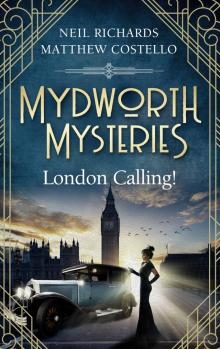 Mydworth Mysteries--London Calling!
Mydworth Mysteries--London Calling!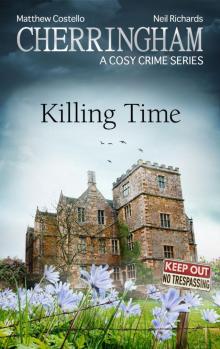 Cherringham--Killing Time
Cherringham--Killing Time Mydworth Mysteries--The Wrong Man
Mydworth Mysteries--The Wrong Man Cherringham - The Drowned Man
Cherringham - The Drowned Man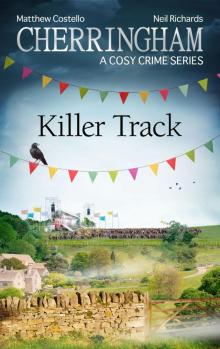 Cherringham--Killer Track
Cherringham--Killer Track Cherringham--The Secret of Brimley Manor
Cherringham--The Secret of Brimley Manor A Deadly Confession
A Deadly Confession Cherringham--Murder under the Sun
Cherringham--Murder under the Sun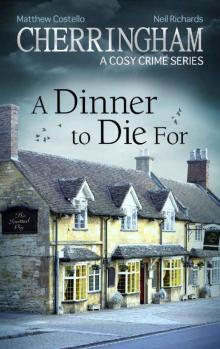 Cherringham - A Dinner to Die For
Cherringham - A Dinner to Die For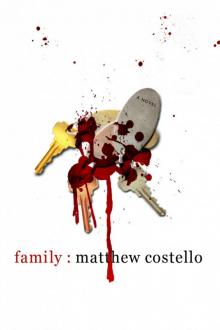 Family
Family Cherringham--Death Trap
Cherringham--Death Trap Cherringham--The Curse of Mabb's Farm
Cherringham--The Curse of Mabb's Farm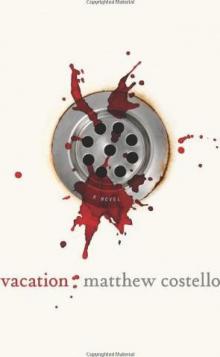 Vacation
Vacation Cherringham--A Bad Lie
Cherringham--A Bad Lie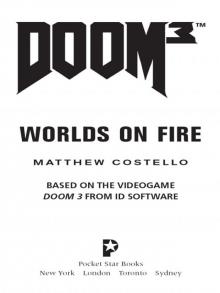 Doom 3™: Worlds on Fire
Doom 3™: Worlds on Fire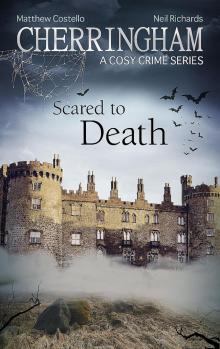 Cherringham--Scared to Death
Cherringham--Scared to Death Home
Home Dead in the Water
Dead in the Water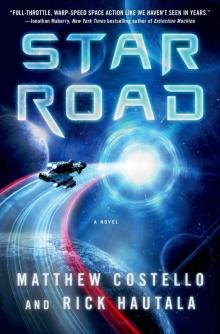 Star Road
Star Road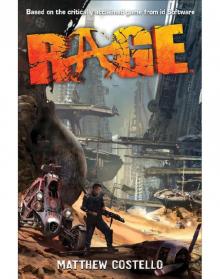 Rage
Rage Cherringham--A Fatal Fall
Cherringham--A Fatal Fall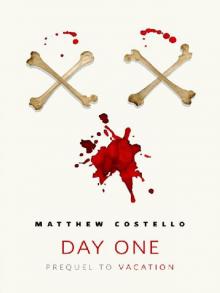 Jack Murphy_Prequel_Day One
Jack Murphy_Prequel_Day One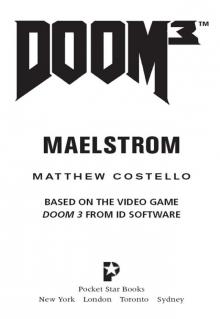 Doom 3™: Maelstrom
Doom 3™: Maelstrom